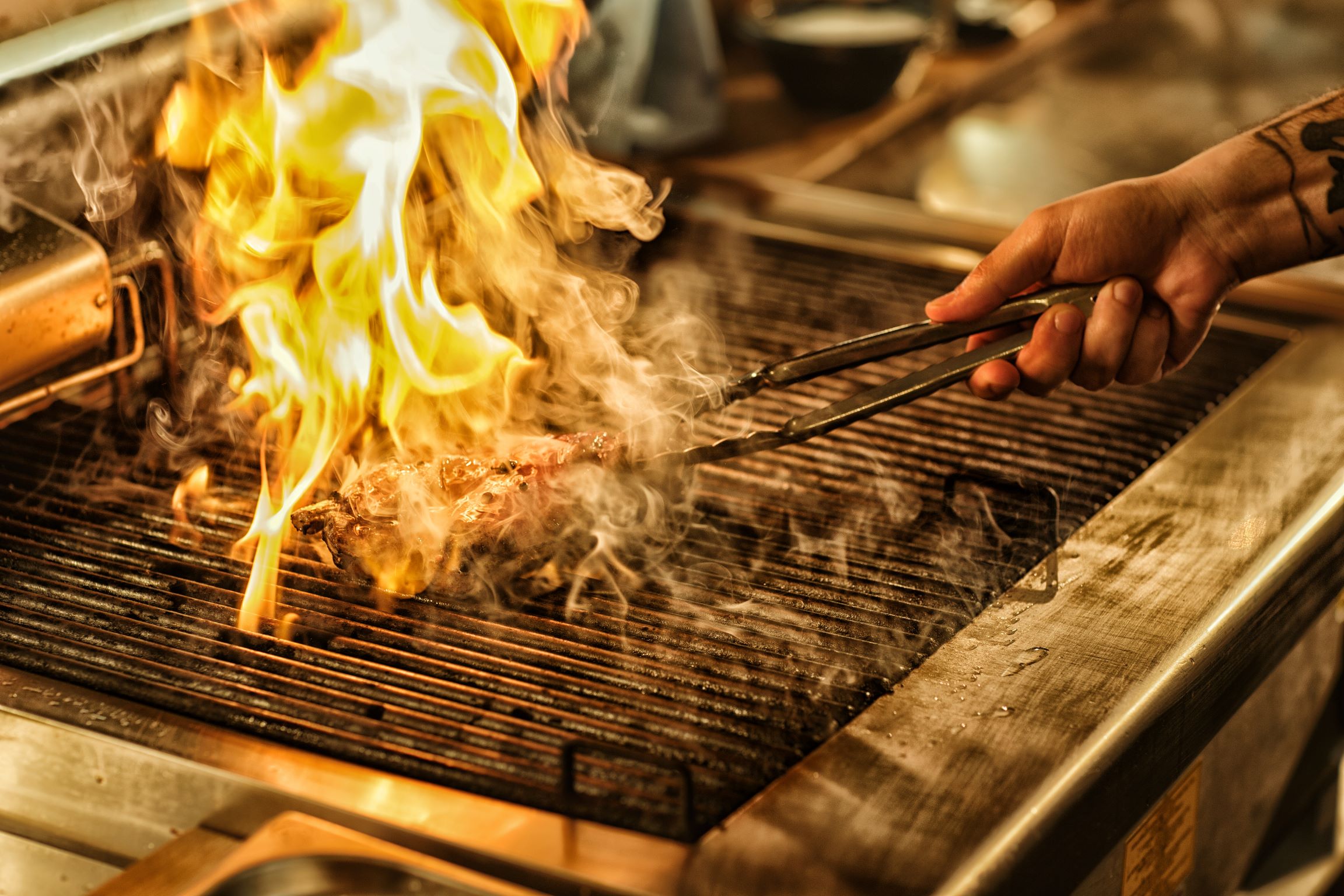Kitchen safety tips and considerations
Kitchen safety tips and considerations
Cooking and producing your favourite cuisine in the kitchen can be entertaining and delightful. It is crucial to observe some basic kitchen safety tips. There are several dangers all around that could cause an accident and harm. Utilizing electrical gadgets, leaving sharp blades laying around in touch with an open flame from the cooker or oven, and even germs in your kitchen are all risk factors for injury. Pay attention to what you are doing and what is happening to avoid hurting yourself or people around you. It is proper to have a well-thought-out strategy and method in place when cooking and the appropriate safety gear. Before starting kitchen remodeling in houston you need to know about some kitchen safety tips given below :

Unplug Appliances not in use
Electric kettles, blenders, and other countertop equipment must be unplugged immediately after use. Since many of these gadgets are energy hogs, leaving them plugged in might raise energy costs. As long as they are plugged in, they use energy even when not in use. Additionally, you risk electrocution if your appliance is connected to a non-GFCI outlet, comes in contact with water, or falls into the sink.
Knife safety
Knives can be very hazardous when mishandled. Never leave knives on the counter, in drawers that aren’t closed or in the sink. Accidental cuts may result from unsecured or concealed blades. After use, a knife should be stored in a block or holder. You avoid bacterial development that can contaminate knives. Make sure you clean knife blocks and holders. Always cut away from the body and on a sturdy surface when cutting food, and ensure your knives are sharp. Using a dull knife will need more force, which could result in losing control.
Fire extinguisher
In a family, cooking is the primary source of fires and accidents. Knowing how to use your fire extinguisher in an emergency is essential. A fire can quickly become out of control in a matter of seconds. Learn about several fire kinds, such as electric and grease fires. The best technique to put out most fires is to suffocate them by removing air. The best way to put out an oven fire is using an extinguisher, and you may put out a microwave fire by just turning off the equipment and keeping the door closed.
Wear suitable dress
Hot oils and hot surfaces can be used while cooking. The incorrect apparel might expose your skin to burn injuries. Wearing tops with no sleeves or long, baggy sleeves is not recommended. Droopy clothes can burn you if held over the burner or snagged on pots and pans. Direct burns to your skin could result from wearing any sleeves. Additionally, the fabric type can affect kitchen safety. Wearing combustible or synthetic fabrics puts you at risk of having them melt onto your skin. Wear closed-toed shoes and remove all jewellery to improve kitchen safety even more.
Cook safely with oils
When preparing meat and veggies, oil is frequently utilized. Be careful when heating oils to prevent spills and small burns. Heat oils gradually to prevent injury. Always keep an eye on any food in the oven or on the stove to avoid over-burning. If something smells like it is burning or looks like it is burning, turn it off and give it a little while to cool before examining the meal. Wait until your pots and pans are cool before washing and cleaning them down, and do the same before cleaning your pots and pans.
Replace Your Refrigerator Water Filter
The water and ice from your refrigerator’s dispenser will be contaminated if the filter isn’t changed regularly. This could harm your health. As it accumulates more contaminants over time, the water filter in your refrigerator becomes less effective. To enjoy safe ice and drinking water from your refrigerator, install a freshwater filter to eliminate pollutants, chlorine taste, and odour.
Wash your hands
The fact that many people overlook this stage defies conventional sense. Washing your hands with warm, soapy water before and after cooking is essential. When drying your hands after, try to use paper towels. Food poisoning can result from drying your hands with dish towels containing raw meat or juice residue after cleaning the dishes. Always wash your hands before handling any food, and after touching raw meat or poultry, rewash them before touching other items to prevent cross-contamination. After cooking, remember to clean the kitchen countertops and sinks.
Handle hot dishes with care
Having hot dishes puts everyone in your vicinity in danger. Never leave a stovetop dish unattended while the burner is on, and use oven mitts to protect your hands when removing a hot lid. Boiling water should not be filled to the top since it will bubble and spill over as it gets hot. Additionally, when transferring a pot of hot water to the washbasin, ensure the area is clear. To avoid any mishaps, spills should be cleaned up right away.
Wipe up spills immediately
When attempting to multitask, spilling anything in the kitchen is common. It is essential to clean up any water, grease, or oil spills right away to increase kitchen safety and prevent trips and injuries. Additionally, uncleanly prepared food that spills in the oven imparts an unsavoury flavour of smoke and charcoal to your food, which is unhygienic and might make you sick.
Final thoughts
You can protect your family from mishaps and food poisoning by being aware of kitchen dangers, carefully handling food, and cleaning correctly. While these precautions might appear time-consuming, they can shield you from disease and accidents.
